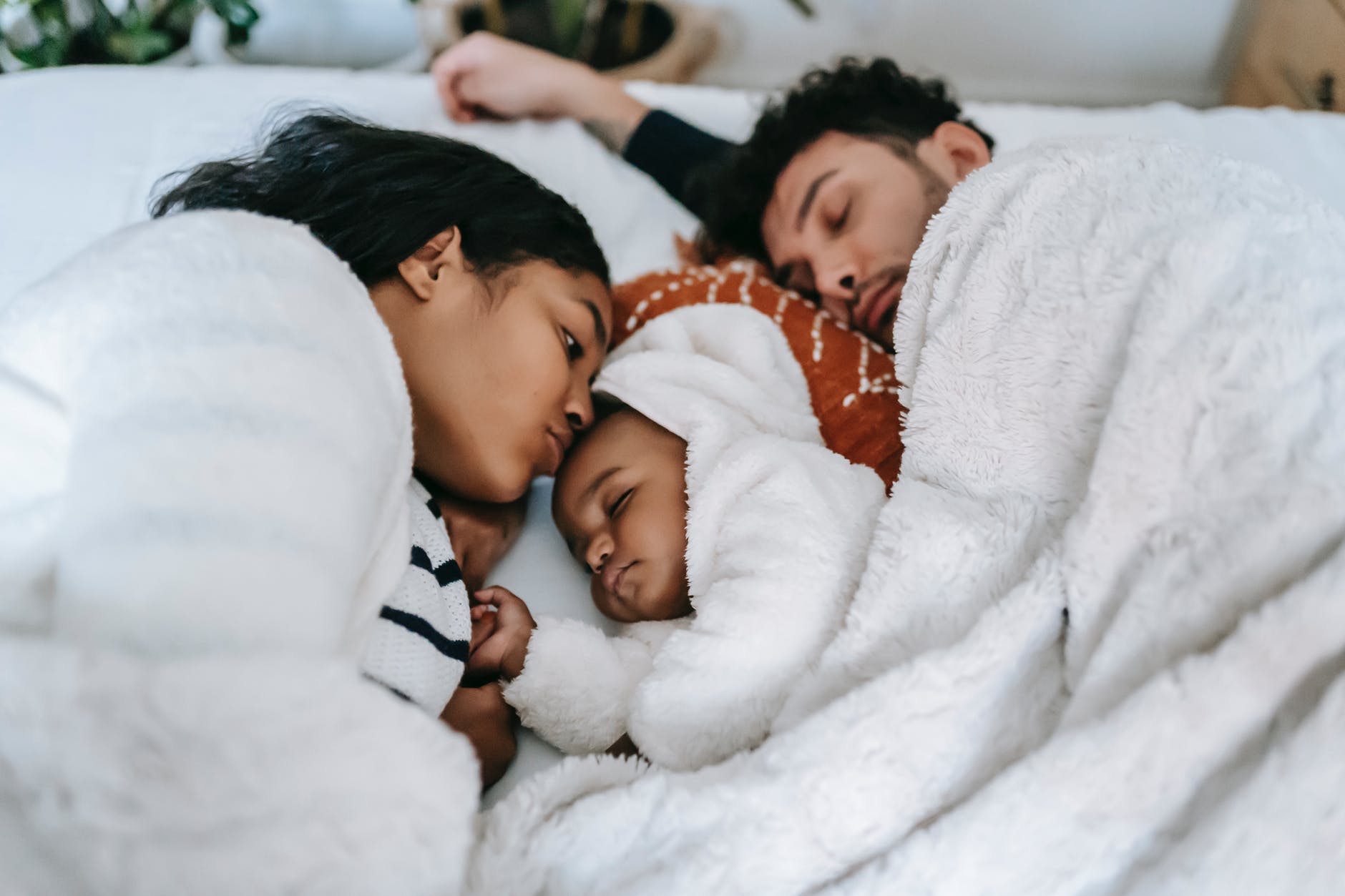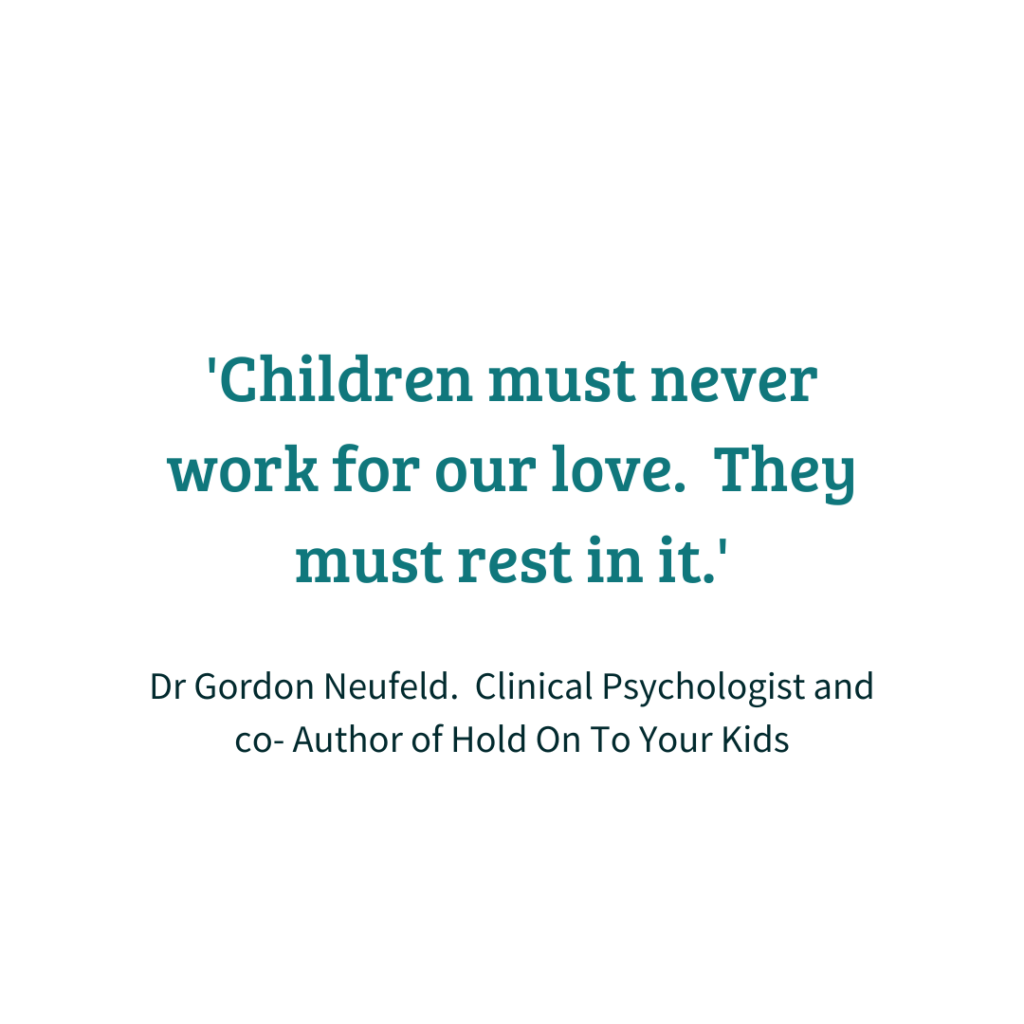

Such beautiful wisdom this is.
The thought of a child ‘resting in love’ is so beautiful to me. How many of us as children, couldn’t truly rest or relax in it for fear of it being pulled away, because we hadn’t met the conditions it had been attached to.
Or because love felt by the parent wasn’t followed through in action. That core message lost, behind a wall of well meant control tactics like ‘tough love’, withdrawal of ‘privileges’, harsh words or looks; the one of the most painful for me as a child was emotional isolation. Feeling that my emotions were too much for my adult carer so I had to hold them alone. My youngest son has been the one to teach me this: It’s not what you’re saying, but the look on your face, your body language and your energy that leave the longest lasting impression. He see’s through my words every single time if they don’t align with my face.
The opposite of addiction isn’t sobriety. It’s connection. It’s all I can offer. It’s all that will help [you] in the end. If you are alone, you cannot escape addiction. If you are loved, you have a chance. For a hundred years we have been singing war songs about addicts. All along, we should have been singing love songs to them.”
Johann Hari, Chasing the Scream: The First and Last Days of the War on Drugs
The opposite of addiction is connection and those connections to our caregivers through infancy and childhood are the vital foundations on which all future connections are made. They determine how we feel about ourselves and how we attach to the world and people in it. Early childhood attachment is so crucial and though it may be painful to look back and see how we could’ve done things differently, we need to open our eyes and our hearts, because as long as your children are under your roof it isn’t too late.
Do we feel worthy, loveable, important, special, valued and enough? Or do we feel uncomfortable and lacking, always searching outside of ourselves for someone or something to fill the void? What about our children, how do they feel about themselves?
Like all parents I’ve made mistakes, I did the best I could with the knowledge and emotional maturity I had, but I’d also inherited some inter-generational trauma. That really did affect my ability to be a calm loving presence when my eldest two sons were little. Sometimes I managed, others I didn’t, I shut down. I became emotionally unavailable, or I swung between stressed-out-shouty mum, exhausted-permissive-mum and kind-loving-happy mum. How confusing that must have been for my babies/toddlers.
The chilled out happy mum of course was aided by my increasing evening drinking habit, which tricked me into believing it was helping me cope.
What I know now is that alcohol was making it all so much harder. Up until ‘gin O’clock’ or ‘Wine O’clock’ I was less patient, less tolerant, less capable of being emotionally regulated, less able to cope with stress and nights of little sleep. As I write this I fill up with tears of compassion for the struggling mum of two that I was back then. I want to reach back in time and hug her so tight. I want to sit her down and ask her to breathe with me… deeply and slowly, while I hold her hands and whisper “you are stronger than you know… you can do hard things and… I’m proud of you.”
I hold no blame or shame for anything that has gone before. Not for me, my mum or my mums mum. No blame, just compassion and curiosity. As Dr Mate put’s it, ‘compassionate inquiry’. Mindfulness. In the last few months I feel like I’ve been able to step outside of my life and see all the things I’ve never been able to see before. This is my time to heal.
But what I can’t do is go through my own healing process without reflecting on how my inner wounds and my alcohol use disorder, has impacted the development of my own children.

If a parent asked me for one piece of advice, I would go back to the quote that inspired this post and say: let your children ‘rest in your love’.
Work on your strengthening your connection with them, and put THAT above everything else. Above all the ‘shoulds’, above all the well meaning advice from elders, or so called ‘parenting experts’ you might see on tv or elsewhere. Say a firm ‘Fuck You’ to the concept of Time Outs and give them Time In, time in your arms, in your space, in your compassionate listening. Love them hard and love them for exactly who they are, without holding them to any expectations of who YOU think they should be. Make space for them and all their big feelings, listen with empathy and hold space. Without trying to ‘fix’ anything.
Above all else let them know that you are their safe place. That no matter what, you will be there for them with open arms and a warm heart. Solid, unshakable and rooted in love.

–